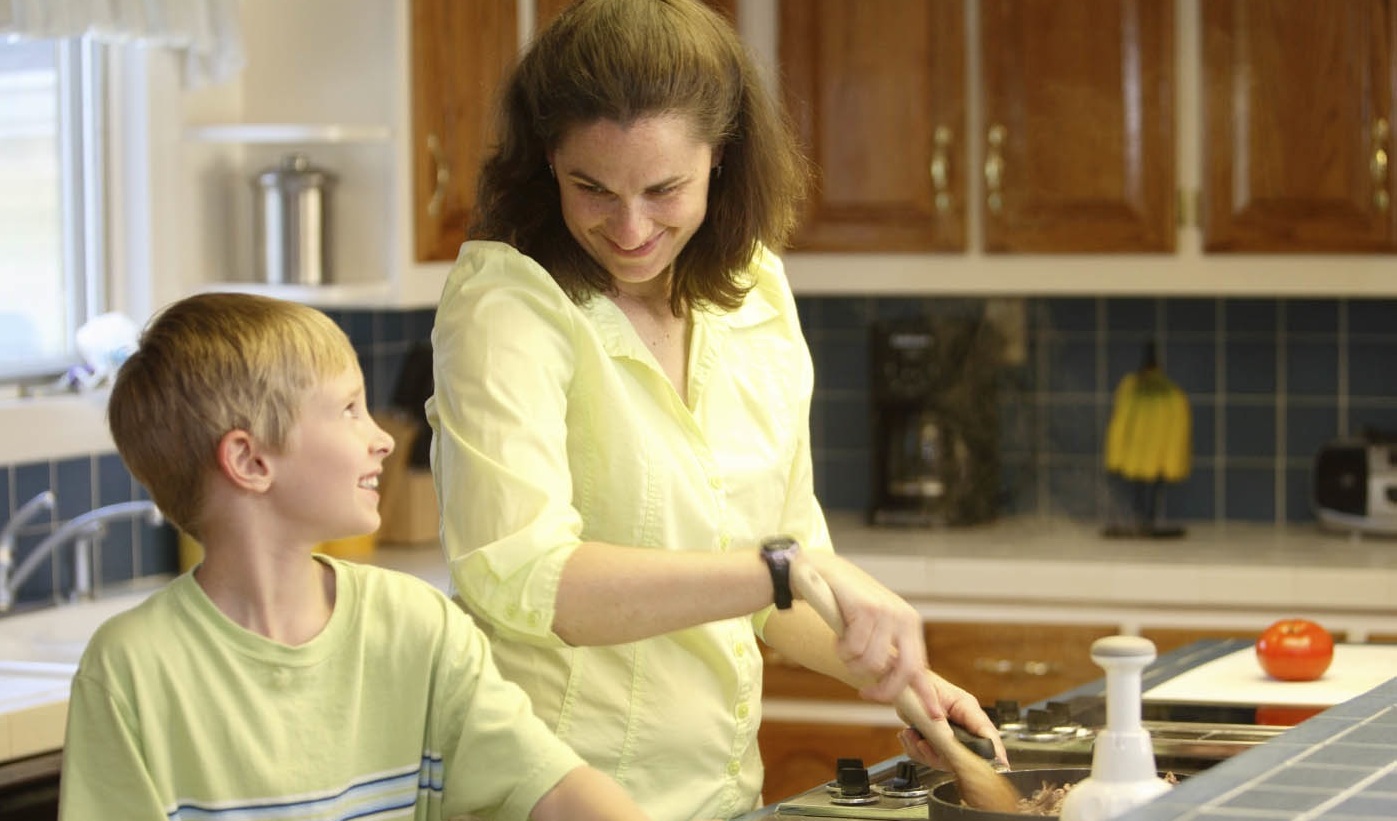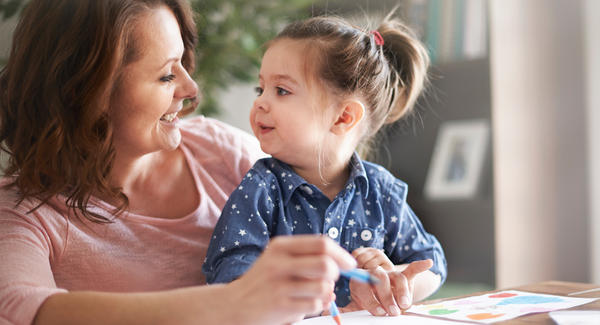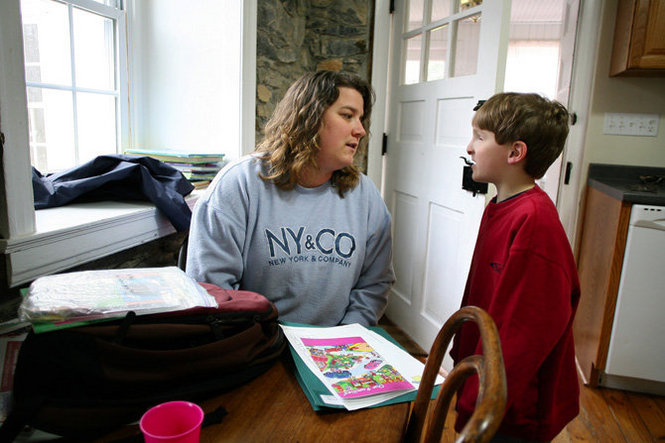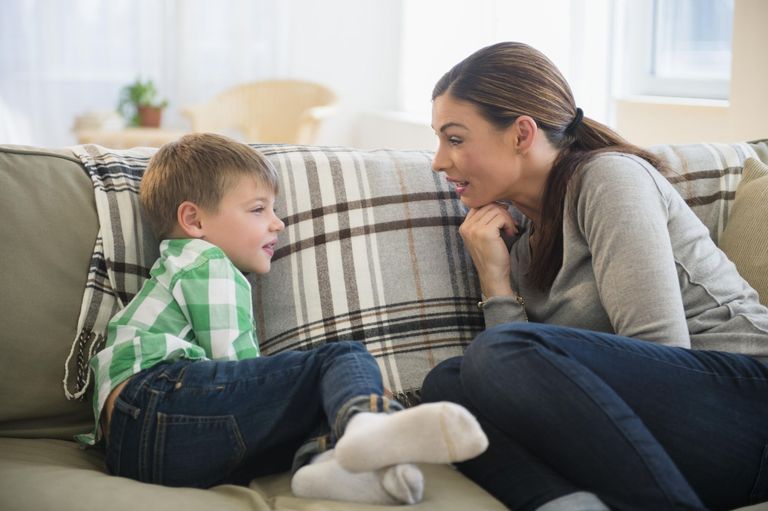“The way we talk to our children becomes their inner voice.” - Peggy O’Mara
As parents we love our children, shower them with all our affection and care. But that’s not the whole and sole of parenting. The little kids lack experience and the ability to differentiate good from bad. They often have no idea that a particular behavior is bad, they have to be taught these little things. As parents we tell them that shouting is bad but when they do so we shout ourselves, putting up a wrong example! The way we talk to them also has a role to play in their behavior. Does that astound you? We have come up with a guide that will give you an insight into the right ways to communicate with the little brains!
Use Their Name
 Don’t you respond better to an instruction when your name is called? A little chime of our name attracts our attention and children are no different. When you want to talk to them, call their name and wait for their complete attention before you speak your next sentence. This will help, try it!
Don’t you respond better to an instruction when your name is called? A little chime of our name attracts our attention and children are no different. When you want to talk to them, call their name and wait for their complete attention before you speak your next sentence. This will help, try it!
Make Eye Contact
 This might sound a bit difficult due to the difference in your heights but eye contact works better even with us, so it's a must with kids. Sit down with them on a chair or kneel down while you talk to them. Making a constant eye contact will make them feel that they are being given full attention and will thus imitate you and be all ears to you!
This might sound a bit difficult due to the difference in your heights but eye contact works better even with us, so it's a must with kids. Sit down with them on a chair or kneel down while you talk to them. Making a constant eye contact will make them feel that they are being given full attention and will thus imitate you and be all ears to you!
Trending: 5 Ways Kids Can Connect with Their Grandparents
Check Volume
 The tone and volume of your speech will make a great impact on how your child perceives you. Talk softly to him if you want the same from him. When he is angry and shouting, raising your voice to be of no help. There will be only noise in the room without room for actual communication. Instead, wait for him to calm down and then explain softly. Reserve high volume for very urgent matters as the occasional use of it will draw more attention!
The tone and volume of your speech will make a great impact on how your child perceives you. Talk softly to him if you want the same from him. When he is angry and shouting, raising your voice to be of no help. There will be only noise in the room without room for actual communication. Instead, wait for him to calm down and then explain softly. Reserve high volume for very urgent matters as the occasional use of it will draw more attention!
Positive Statement
 We are in the habit of telling children what they are not supposed to do. Statements like, “Don’t leave food on plate” or “Don’t mess your room” are common in the house. But the little ones often only retain part of the information like run in-house or drop the glass which increases such behaviors. Rather tell them what you want them to do. “Finish your food completely” and “Put things back after use” are better statements!
We are in the habit of telling children what they are not supposed to do. Statements like, “Don’t leave food on plate” or “Don’t mess your room” are common in the house. But the little ones often only retain part of the information like run in-house or drop the glass which increases such behaviors. Rather tell them what you want them to do. “Finish your food completely” and “Put things back after use” are better statements!
Suggest Options
 You want your child to go out in the rain only with an umbrella, instead of ordering him you may say, “Black or yellow, which umbrella will you carry?” This way your kid feels that he has options when in reality there is not much room for negotiation. Words like if can be replaced with when to make it sound like a choice. “If you finish homework, you can watch TV” sounds like a restriction. But you can make it sound like a choice with, “When you complete your homework, you may watch TV”!
You want your child to go out in the rain only with an umbrella, instead of ordering him you may say, “Black or yellow, which umbrella will you carry?” This way your kid feels that he has options when in reality there is not much room for negotiation. Words like if can be replaced with when to make it sound like a choice. “If you finish homework, you can watch TV” sounds like a restriction. But you can make it sound like a choice with, “When you complete your homework, you may watch TV”!
Gentle and Firm
There is no way you will give in to their wrong demands but you will have to communicate this to them gently. Decide with your partner what is allowed and what is not and stick to one decision, this lessens confusion in kids and also prevents playing one parent against the other!
Be A Role Model
 You expect good manners, display good manners! You want them to say words like “Thank You”, “Please” and “Welcome” then use these for them as and when required. They will learn through your behavior and not by your teachings. You have to be a role model for them. They need to see that there is a particular way of speaking and they have to follow suit!
You expect good manners, display good manners! You want them to say words like “Thank You”, “Please” and “Welcome” then use these for them as and when required. They will learn through your behavior and not by your teachings. You have to be a role model for them. They need to see that there is a particular way of speaking and they have to follow suit!
Also Read: 10 Inventive Cardboard Fort Ideas For Playful Kids
Repeat Instructions
 Sometimes you kid may not be able to understand what you expect out of him. Maybe your choice of words is too tough to be understood by a little kid. Ask him to repeat what you said and if that doesn't happen, rephrase with simpler words!
Sometimes you kid may not be able to understand what you expect out of him. Maybe your choice of words is too tough to be understood by a little kid. Ask him to repeat what you said and if that doesn't happen, rephrase with simpler words!
Forget Nagging
We dislike being told same things 10 times a day, its very irritating and kids for that matter have the same feelings. Instead of telling them to finish their homework every now and then, make time tables for them. They would already know what to do at what time. You may start this practice by giving rewards on completion of tasks within the deadline and reduce the frequency of these gifts with time!
One To One Conversation
 This is tough when you have more than one kids and that too with a significant age gap. The older one takes charge of communicating their needs and queries and the little one just hides behind. This isn't too good for their development. Try to talk to them separately to develop communication skills in all of them and simultaneously build a bond with them!
This is tough when you have more than one kids and that too with a significant age gap. The older one takes charge of communicating their needs and queries and the little one just hides behind. This isn't too good for their development. Try to talk to them separately to develop communication skills in all of them and simultaneously build a bond with them!
“The sign of great parenting is not the child’s behavior. The sign of truly great parenting is the parent’s behavior.” - Andy Smithson.




